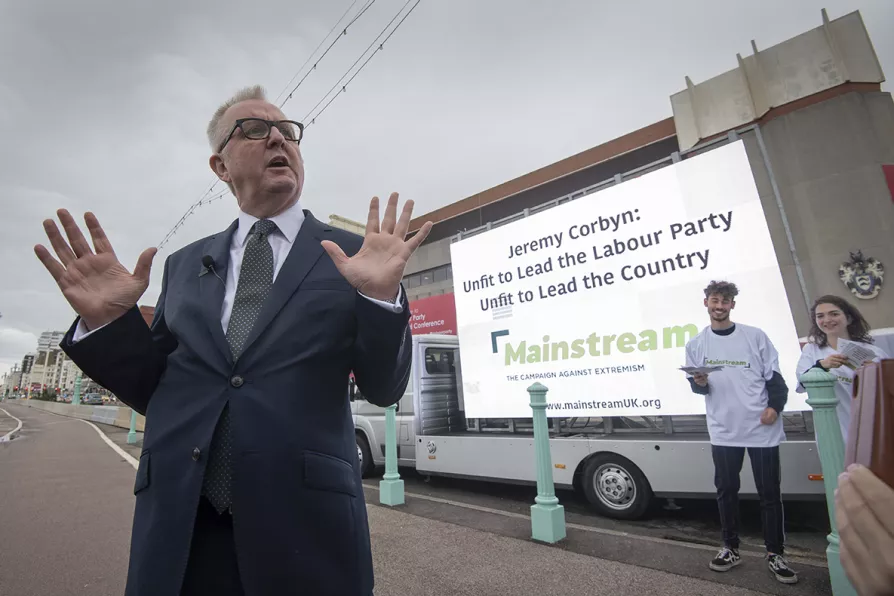The Mandelson scandal reveals a political settlement in which democratic choice is curtailed and the power of markets eclipses the will of voters – only the left can challenge this, writes JON TRICKETT MP

 Former Labour MP Ian Austin launches Mainstream outside the Labour Party Conference in Brighton last year
Former Labour MP Ian Austin launches Mainstream outside the Labour Party Conference in Brighton last year
MAINSTREAM, the anti-Corbyn group led by former Labour MPs Ian Austin, Ivan Lewis and Mike Gapes, used Tory-led PR firm Public First to run its 2019 election activities.
Figures from the Electoral Commission on spending in the 2019 election released this month show Austin’s Mainstream spent £134,457 on campaigning and advertising in the election. That’s a lot of money for a “campaign” with no grassroots members.
They got a lot of bang for their buck, as even the most artificial public event with Austin got strong media coverage. Austin was rewarded by Boris Johnson for his turncoat campaigning with a place in the Lords.

With ‘Your Party’ holding its founding conference in Liverpool this weekend, JEREMY CORBYN speaks to Morning Star editor Ben Chacko about its potential, its priorities — and a few of its controversies too

It is rather strange that Labour continues to give prestigious roles to inappropriate, controversy-mired businessmen who are also major Tory donors. What could Labour possibly be hoping to get out of it, asks SOLOMON HUGHES

SOLOMON HUGHES details how the firm has quickly moved on to buttering-up Labour MPs after the fall of the Tories so it can continue to ‘win both ways’ collecting public and private cash by undermining the NHS












